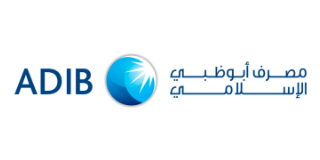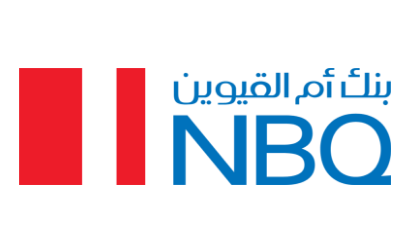Dubai Islamic Bank Personal Loan Interest Rate

- Minimum Salary 5000 AED
- EMI Tenure up to 48 Months
- Lowest Interest Rates
Get personal loan at Lowest Interest Rate

With Dubai Islamic Bank (DIB), you can find personal loans to meet your immediate financial needs without much hassle. These loans provide flexible repayment terms and are Sharia-compliant, i.e. they align with Islamic banking principles.
Besides transparent loan terms and conditions, a major benefit of this bank’s finance options is its attractive DIB interest rates for personal loans. With such affordable rates, you can enjoy affordable financing.
We will now look into the DIB personal loan interest rates and the key aspects that affect the interest rates in the UAE!
DIB Personal Loan Interest Rate in the UAE
In the UAE, the Dubai Islamic Bank personal loan interest rate ranges between 7.21% and 21.96%. Note that the mentioned DIB loan interest rate is the Indicative Annualized Percentage Rate (APR).
What are the Features and Benefits of a Dubai Islamic Bank Personal Loan?
Before discussing the interest rate further, let’s quickly understand the key features and benefits of the Dubai Islamic Bank personal loan -
- High financing amounts
- For UAE nationals — Up to AED 4 million
- Expats — Up to AED 2 million
- Enjoy the first instalment deferment period of up to
- 120 days — for UAE nationals
- 90 days — for expats
- Flexible loan repayment tenure of up to 48 months
- Quick loan application processing
Factors Affecting Dubai Islamic Bank Personal Loan Interest Rates
Given below are the major aspects influencing DIB personal loan interest rates in the UAE -
Loan Tenure
- Shorter Tenure: Usually results in lower interest rates as the risk for the bank is reduced
- Longer Tenure: This may lead to higher interest rates due to increased risk over time
Loan Amount
- Higher Amounts: This may attract better interest rates as they indicate a larger business for the bank
- Lower Amounts: A higher interest rate is usually involved due to higher relative processing costs
Income
- Higher Income: Shows a better repayment capacity, potentially leading to lower DIB interest rate for personal loan
- Lower Income: Might result in higher interest rates due to perceived higher risk
Debt Burden Ratio (DBR)
- Lower DBR: Suggests lower existing financial obligations, which may qualify for lower interest rates
- Higher DBR: This indicates higher financial commitments, possibly leading to higher interest rates due to increased risk
For instance, if your salary is AED 10,000 and your monthly debt obligation is AED 3,500, your DBR will be 3,500/10,000 x 100 = 35%.
Now assume that your debts grow and your DBR becomes, say, 45%. In this case, you will have less income available for new debt. In this case, you may get the loan at higher rates.
Credit Score
- High credit Score: Represents good creditworthiness, often resulting in lower interest rates
- Low Credit Score: Implies higher risk, likely leading to higher interest rates
Relationship with the Bank
- Existing Relationship: Those with a good history with Dubai Islamic Bank might receive preferential interest rates
- New Customers: May not receive the same benefits until they establish a relationship with the bank
Age
- Younger Borrowers: May receive standard interest rates based on their financial profile
- Older Borrowers: Nearing retirement age might influence the loan terms and potentially increase the interest rates due to shorter remaining working years
Calculating Dubai Islamic Bank Personal Loan Instalments
It’s quite easy to calculate your DIB personal loan monthly instalments without manual calculations. Simply open the bank’s website, go to the calculator section, and enter the required details — your loan amount, loan tenure, and interest rate. The calculator automatically estimates the monthly instalment.
Alternatively, you can access the personal loan calculator available for free on our digital platform. Click here to get redirected to our personal loan calculator.
However, note that the result generated will be slightly different from the actual amount. This is due to the variation in the interest rate, which is decided by the bank.
Using the online calculator is convenient compared to manual calculations as the former eliminates the chances of numerical error.
Dubai Islamic Bank: Fees and Charges
While exploring the Dubai Islamic Bank loan interest rates, it’s also worth noting the fees and charges associated with the DIB personal loan in UAE. Check out the table below -
| Type of Fee | Charges |
|---|---|
| One-Time Documentation Fee | 1.05% of the finance amount (Inclusive of VAT)
|
| Applicable Late payment Donation | AED 175 (VAT included) |
| Credit Appraisal and Documentation fee | AED 105 |
| Early Settlement Charges (one-time charge) | 1% of the remaining value (up to AED 10,000) |
In a Nutshell
DIB presents an excellent option for those seeking Islamic financing.
With attractive Dubai Islamic Bank personal loan interest rates in the UAE and many other features, this is a competitive and affordable solution if you need financial support. Additionally, the bank's products structured as per Sharia principles ensure that all loans are ethical and transparent.
Borrowers benefit from flexible repayment options, making it easier to manage their finances effectively.
FAQs
Ans: A business connection exists in an Islamic financial system based on the Mudarabah principles: you contribute to the funds and the bank diverts them to a charitable business of their choice. A profit sharing rate (PSR) is established as a condition of this connection.
This is in contrast to ‘interest’, which the bank guarantees irrespective of the amount of profit the bank makes. You can calculate your profit percentage by dividing your profits (as determined by the PSR) by the amount you initially invested.
Ans: No, DIB does not charge a personal loan interest rate. However, the bank does charge a profit rate.
Ans: Dubai Islamic Bank Al Islami Personal Finance is an Islamic credit product that complies with the Shariah law. This finance product is perfect for those who need extra funds to attend personal affairs like higher education, wedding, home renovation, and more.
Ans: Personal finance profit rates are considerably influenced by your debt-to-income ratio, which is calculated by dividing all your monthly debts by your gross monthly income. A high debt-to-income ratio reveals that your debts take up a considerable portion of your income, in which case the provider may charge a higher profit rate.
Personal Loan Categories
Personal Loan Bank Wise

More From Personal Loans
- Recent Articles
- Popular Articles








































